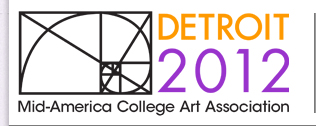Session Title
Change your mind, change your practice; or why you should consider a collaborator for your next project
Start Date
5-10-2012 8:00 AM
End Date
5-10-2012 9:30 AM
Session Description
Over the last several decades, collaborative, social practices have become an important and fundamental part of the spectrum of work labeled “contemporary art”. Today, community engagement has become exceptionally interdisciplinary with participants emerging from various intellectual and academic backgrounds. For truly engaged artists this way of working is not simply about investigating a growing international trend; it is an explorative process with deeply embedded roots in research, pedagogy and shifting ideological expectations.
Through presentations by artists, curators and other scholars that work under the diverse rubric of “social engagement”, encouraging greater awareness of political and social issues through their practices, this panel explores the nature and importance of the process of collaboration in and of itself. Conversations will provoke a new thoughtfulness on why this way of working yields results quite different from solitary artistic practices. It also explores how this way of working achieves superior results from every aspect of producing work: planning, making and exhibiting as well as the disadvantages that can also result.
Change your mind, change your practice; or why you should consider a collaborator for your next project
Over the last several decades, collaborative, social practices have become an important and fundamental part of the spectrum of work labeled “contemporary art”. Today, community engagement has become exceptionally interdisciplinary with participants emerging from various intellectual and academic backgrounds. For truly engaged artists this way of working is not simply about investigating a growing international trend; it is an explorative process with deeply embedded roots in research, pedagogy and shifting ideological expectations.
Through presentations by artists, curators and other scholars that work under the diverse rubric of “social engagement”, encouraging greater awareness of political and social issues through their practices, this panel explores the nature and importance of the process of collaboration in and of itself. Conversations will provoke a new thoughtfulness on why this way of working yields results quite different from solitary artistic practices. It also explores how this way of working achieves superior results from every aspect of producing work: planning, making and exhibiting as well as the disadvantages that can also result.

